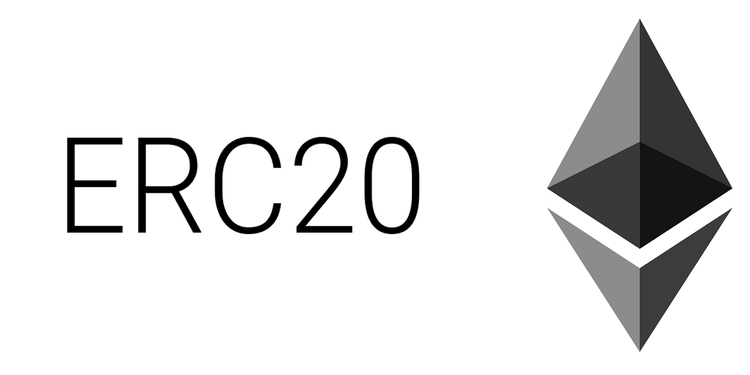Hong Kong Debuts Crypto ETFs

Hong Kong joined the crypto ETF rush by launching six spot Bitcoin and Ether exchange-traded funds (ETFs), becoming the first in Asia to provide retail investors with the opportunity to trade the leading cryptos at spot prices. Three Chinese firms were initially approved to issue the spot crypto ETFs.
Hong Kong now boasts six spot Bitcoin and Ether exchange-traded funds— becoming the first in Asia to offer retail traders and market participants the chance to trade the top cryptos at spot prices. The initial crypto ETFs were issued by three Chinese firms—Bosera Asset Management, China Asset Management, and Harvest Global Investments. The Hong Kong Securities and Futures Commission (SFC) approved three providers in the second week of April, following the success of the spot Bitcoin ETFs in the United States.
Last January 10th, the US Securities and Exchange Commission approved 11 funds from different asset managers, including BlackRock and Fidelity. The approval and subsequent availability of the ETF funds on the trading floor attracted a lot of attention, increased participation from institutions, and pushed Bitcoin's price briefly to its new all-time high at $70k. Approving the spot Bitcoin ETFs in the US was a watershed moment for the industry, which helped validate the reputation of Bitcoin and other cryptos as an asset.
But first, what's a spot ETF?
The ETFs or exchange-traded funds are securities that track the underlying performance of an asset or collection of assets or commodities. So, a spot Bitcoin ETF is an exchange-traded fund that tracks the current price of the digital asset. Investing in a spot Bitcoin or Ether ETF is the best and most convenient way of adding exposure to crypto. Considering the complex process of owning crypto, which involves your exchange account, digital wallets, private keys, network transfers, and security concerns, a spot ETF simplifies your crypto exposure.
By buying a share of the ETF, you own a share of the crypto holdings backed by the asset without holding it. Spot ETFs for Bitcoin and Ether are also convenient since you can redeem them anytime based on the market demand or prices.
In a spot ETF market for crypto, the approved company will buy a select amount of Ether or Bitcoin, which are helped in a secure digital wallet by a custodian. Custodians offer crypto storage in a secure vault, so concerns about security and safety are addressed. Most of these vaults are 'air-gapped in the cold storage,' meaning the crypto keys are stored offline and cannot be accessed by bad actors through the internet.
The ETFs then issue shares representing the cryptos held by the fund. Shares are priced to reflect the current spot price of the crypto, which is then traded on the stock exchange. In short, introducing the spot crypto ETFs in Hong Kong makes it easier for retail investors and traders in the region to buy and sell that asset tied to the coin's current value without holding it.
The process is convenient, like buying and selling traditional stocks, and Hong Kong's SFC plans to add more to allow for more informed comparisons in terms of service fees. If you're a crypto enthusiast or want exposure to the asset but lack the technical skills and know-how to buy, sell, and secure it, then buying into spot ETFs is your best option.
Hong Kong continues its push to become a cryptocurrency hub
Hong Kong aims to become the region's cryptocurrency hub, and its positioning is anchored on the recent approval of the spot crypto ETFs. In addition to the listing of the ETFs from three approved Chinese companies, Hong Kong's securities watchdog is also beefing up its human resources by hiring a former senior executive at a Binance-affiliated crypto exchange, a move seen as a way to strengthen the know-how for managing the crypto industry.
Nikkei Asia reports that Stanley Fung, the former CEO of HKVAEX, a Binance-backed exchange, has joined the SFC as part of the intermediaries supervision team charged with licensing crypto exchanges. Mr. Fung's entry into the SFC comes at a perfect time when Hong Kong is reviewing its new exchange licensing system. The SFC is currently reviewing 23 applications for virtual asset exchanges under a framework introduced in June. As part of the team, Fung sends questions to the exchange applicants.
SEC's drive to regulate and solidify crypto trading is part of Hong Kong's strategy to boost its status as an international finance hub. Hong Kong first announced its plans to become a crypto hub in 2022 after almost two years' worth of pandemic restrictions, with Beijing's grip tarnishing the city's reputation as a leading financial hub. By approving and launching the virtual asset spot products, which are the first in Asia, Hong Kong solidifies its leading position in Asia as a financial and cryptocurrency hub.
Hong Kong is one of the first to approve an Ether ETF. In the US, the SEC has approved changes to allow the creation of Bitcoin ETFs but has yet to approach an Ether ETF. This move boosts Hong Kong's reputation and is positive for Hong Kong markets.
With the approval and launching of spot ETFs for cryptos, Hong Kong remains a few steps ahead of Singapore and Dubai, which are also trying to establish themselves as regulated hubs for digital assets. Experts say that Japan, Singapore, and South Korea can be next in line and may approve similar products in the next few years. The approval will also open the industry to institutional and retail investors, which can help boost volatility and the wider acceptance of Bitcoin and Ether.
What's next for Hong Kong's spot crypto ETFs?
Hong Kong's approval and launch of crypto funds by three of China's largest asset managers have generated excitement within the industry. This is a welcome and surprising development given Beijing's strict cryptocurrency rules and warnings. It can be remembered that China banned all crypto trading in 2021, but a sizeable number of local investors still trade coins using alternative platforms and virtual private networks. But it's still unclear whether mainland Chinese traders and investors will be allowed to invest in cryptos via spot ETFs.
But for Hong Kong, the approval and launch of the spot ETFs for Bitcoin and Ether is a move in the right direction, particularly in building its branding as the region's leading cryptocurrency hub. Experts say that Hong Kong may see slow growth in crypto assets in management as many investors prefer to observe and watch first from the sidelines. It may take years before the market can match the $12.4 billion of net inflows demonstrated by its US peers, but experts and observers are hopeful that the demand will pick up in time.




